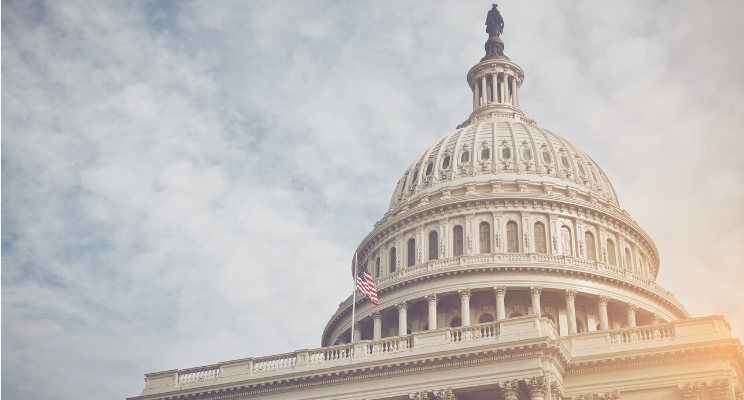On December 20th, 2019, the Setting Every Community Up for Retirement Enhancement (SECURE) Act became law. As the name implies, this law intends to make it easier for Americans to save for retirement. Though this may sound simple enough, as with most laws, the reality is far more complex. The SECURE Act includes changes that affect everyone from beneficiaries of retirement accounts to those with student loans, but the SECURE Act is most likely to affect those either approaching retirement or recently retired. Your unique financial situation will dictate exactly how the SECURE Act will impact you and your retirement plan, but there are a few key changes that everyone should take note of when planning for retirement.
Increase in Required Minimum Distribution Age
An important consideration for many when planning for retirement is the Required Minimum Distribution (RMD), which is the amount you’re required to take out of tax-deferred retirement savings accounts such as traditional IRAs, 401(k)s, 403(b)s, and 457s. The SECURE Act increases the age at which you must begin taking RMDs from 70 ½ to 72. There are a few reasons why an increased RMD age can help save for retirement, including giving your portfolio more time to grow, offering more time to roll your money into a Roth IRA (which does not have RMDs), and minimizing your tax burden by decreasing taxable income. Though this change begins in 2020, it is not retroactive, meaning that if you turned 70 ½ prior to 2020, you must still take RMDs. Only those who turn 70 ½ beginning in 2020, may choose to wait to take RMDs until turning 72.
Increase in Age for IRA Contributions
RMDs are not the only area where the SECURE Act increased ages relating to retirement accounts. Before the passage of the SECURE Act, you could not make contributions to a traditional IRA after turning 70 ½. The SECURE Act has raised that age to 72, as long as you have earned income. This gives people more time to increase their retirement savings. Like the updates to RMDs, this change is not retroactive, meaning you still cannot make contributions to a traditional IRA for the 2019 tax year if you are over 70 ½.
Elimination of Stretch IRAs
The elimination of what was known as a stretch IRA may impact the financial planning of many individuals. This allowed beneficiaries of IRAs to “stretch” the RMDs throughout their lifetime. Now, those who inherit an IRA, 401(k), or other defined benefit plan, must take all distributions within ten years of inheriting the account. Certain groups are exempt from the changes including spouses, people with disabilities, and those within ten years of the age of the account holder. Those who are minors will not be affected immediately, but once the minor reaches the age of majority, he or she then has ten years to take the distributions.
The SECURE Act does not affect those who have already inherited IRAs. The changes will affect only those who inherit applicable retirement accounts from account holders who pass away after January 1, 2020. If you are an account holder, you may want to review the beneficiaries of your accounts, and potentially update your estate plan.
More Options for Part-Time Workers
The SECURE Act increases the number of workers eligible for retirement savings plans. Previously, employees weren’t always eligible to participate in their company’s 401(k) plan if they worked less than 1,000 hours annually (an average of about 19 hours a week). The SECURE Act still requires companies with a 401(k) plan to offer the plan to those who work 1,000 hours or more in one year, but the law also expands eligibility to those who have worked 500 hours annually for three consecutive years.
Incentives to Help Small Business Owners
The SECURE Act incentivizes small business owners to start retirement accounts through a tax credit. Small businesses, defined as businesses with less than 100 employees, are eligible for up to $5,000 in tax credits. For every non-highly compensated employee who is eligible to participate in the retirement account, there is a $250 credit. Companies would be eligible for the credits over a three-year period beginning in 2020. The tax credit applies to SEP IRAs, SIMPLE IRAs, and profit-sharing plans, as well as 401(k)s.
The SECURE Act also encourages small business owners to offer retirement savings plans by making it more appealing to participate in multiple employer plans (MEPs). MEPs allow companies to offer high-quality retirement savings plans at low cost to the employer. But many employers were hesitant to join due to the “one bad apple” rule, which stated that all employers in a plan would deal with the tax consequences if one employer did not satisfy the tax qualification rules. The SECURE Act removes the “one bad apple” rule, making MEPs far more appealing to small business owners.
Education Expenses
Those who are approaching retirement and have children in college or other higher education programs may be impacted by the SECURE Act’s changes to rules surrounding education expenses. Funds from a 529 plan can now be used to cover student loans up to $10,000 per child. The SECURE Act also allows funds from a 529 plan to be put towards some apprenticeship programs and allows those earning stipends, such as those in graduate school or working on a post-doc, to count that money as compensation for the purposes of contributing to a traditional IRA.
Contact us if you have questions about how the SECURE Act may affect your unique financial situation and plans for retirement.
Sources


